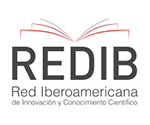Effects of local enemal matrix protein on osseointegration of different surface Titanium implants
Abstract
The aim of this study is to investigate the osseointegration levels of implants with different surfaces locally applied with enamel matrix protein by biomechanical methods. Thirty adult female Spraque Dawley rats weighing 300–350 g were included in the study as subjects. The rats were divided into 3 groups with 10 rats in each group: Machined Surface Group (n = 10), Sandblasted Large Acid Grid (SLA) Surface Group (n = 10) and Resorbable Blasting Material (RBM) Surface Group (n = 10). Titanium implants were surgically placed in the right tibias of the rats with sterile physiological serum cooling. Immediately before the implants were placed, local enamel matrix protein was applied to the prepared sockets and then the implants were placed. The rats were euthanized after waiting for osseointegration for four weeks and the implants were taken with the surrounding bone tissues after the soft tissues were removed. The bone–implant contact of all implants was analyzed by biomechanical method and recorded in Newton·cm-1 (N·cm-1). When the obtained biomechanical data were examined, the average bone–implant contact value was found to be 2.24 ± 0.67 (N·cm-1) in machined surface implants, 4.5 ± 1.36 (N·cm-1) in SLA surface implants and 3.24 ± 0.94 (N·cm-1) in RBM surface implants. A statistically difference was detected between machined surface implants and SLA surface implants (P<0.05; P=0.02). It can be stated that local enamel matrix protein application may increase bone–implant connection in SLA surface implants.
Downloads
References
Brånemark PI, Adell R, Breine U, Hansson BO, Lindström J, Ohlsson A. Intra–osseous anchorage of dental prostheses. I. Experimental studies. Scand. J. Plast. Reconstr. Surg. [Internet]. 1969; 3(2):81–100. doi: https://doi.org/drtkwh DOI: https://doi.org/10.3109/02844316909036699
Istek O, Tanrisever M, Atille Aydin M, Pak P, Eroksuz H, Karabulut B, Ekinci E, Dundar S. Evaluation of the effect of local bovine amniotic fluid on osseointegration of titanium implants: a histologic and histomorphometric study. Rev. Científ. FCV–LUZ. [Internet]. 2024; 34(2):e34417. doi: https://doi.org/n7nz DOI: https://doi.org/10.52973/rcfcv-e34417
Istek O, Tanrisever M, Eroksuz H, Karabulut B, Ozcan EC, Bingul MB, Guler R, Dundar S: The histopathological evaluation of effects of application of the bovine amniotic fluid with graft on peri–implant bone regeneration. Kafkas Univ. Vet. Fak. Derg. [Internet]. 2023; 29(5):551–556. doi: https://doi.org/m854 DOI: https://doi.org/10.9775/kvfd.2023.30031
Bingul MB, Gul M, Dundar S, Bozoglan A, Kirtay M, Ozupek MF, Ozcan EC, Habek O, Tasdemir I. Effects of the application local zoledronic acid on different dental implants in rats on osseointegration. Drug. Des. Devel. Ther. [Internet]. 2024; 18:2249–2256. doi: https://doi.org/pmww DOI: https://doi.org/10.2147/DDDT.S459125
Özcan EC, Aydin MA, Dundar S, Tanrisever M, Bal A, Karasu N, Kirtay M. Biomechanical investigation of the osseointegration of titanium implants with different surfaces placed with allogeneic bone transfer. J. Craniofac. Surg. [Internet]. 2024; 35(7):2184–2188. doi: https://doi.org/pmwx DOI: https://doi.org/10.1097/SCS.0000000000010326
Tekin B, Dundar S, Tekin S, Emine Sukuroglu E, Khurshid Z, Ezgi Y, Demirci F, Faheemuddin M. Effect of micro–arc oxidation coatings with graphene oxide and graphite on osseointegration of titanium implants–an in vivo study. Saudi Dent. J. [Internet]. 2024; 36(4):591–595. doi: https://doi.org/pmwz DOI: https://doi.org/10.1016/j.sdentj.2024.01.013
Sokmen N, Dundar S, Bozoglan A, Yildirim TT, Sokmen K, Sayeste E, Isayev A, Kirtay M. Effect of primary stabilisation on osseointegration of implants with local and systemic zoledronic acid application. J. Craniofac. Surg. [Internet]. 2022; 33(5):1276–1281. doi: https://doi.org/pmw2 DOI: https://doi.org/10.1097/SCS.0000000000008236
Miron RJ, Sculean A, Cochran DL, Froum S, Zucchelli G, Nemcovsky C, Donos N, Lyngstadaas SP, Deschner J, Dard M, Stavropoulos A, Zhang Y, Trombelli L, Kasaj A, Shirakata Y, Cortellini P, Tonetti M, Rasperini G, Jepsen S, Bosshardt DD. Twenty years of enamel matrix derivative: the past, the present and the future. J. Clin. Periodontol. [Internet]. 2016; 43(8):668–683. doi: https://doi.org/f99nm2 DOI: https://doi.org/10.1111/jcpe.12546
Fidan I, Labreuche J, Huck O, Agossa K. Combination of enamel matrix derivatives with bone graft vs bone graft alone in the treatment of periodontal intrabony and furcation defects: a systematic review and meta–analysis. Oral Health Prev. Dent. 2024; 22:655–664. doi: https://doi.org/pmw3
Qiao T, Yi Y, Kang Z, Huang Z, Wan J, Wang Y, Qian C. Recombinant human amelogenin promotes wound healing by enhancing angiogenesis. Biochem. Biophys. Res. Commun. 2024; 734:150462. doi: https://doi.org/gt826n DOI: https://doi.org/10.1016/j.bbrc.2024.150462
Vela OC, Boariu M, Rusu D, Iorio–Siciliano V, Sculean A, Stratul SI. Clinical and Radiographic Evaluation of Intrabony Periodontal Defects Treated with Hyaluronic Acid or Enamel Matrix Proteins: A 6–Month Prospective Study. Oral Health Prev. Dent. 2024; 22:257–270. doi: https://doi.org/pmw4
Miron RJ, Bosshardt DD, Buser D, Zhang Y, Tugulu S, Gemperli A, Dard M, Caluseru OM, Chandad F, Sculean A. Comparison of the capacity of enamel matrix derivative gel and enamel matrix derivative in liquid formulation to adsorb to bone grafting materials. J. Periodontol. 2015; 86(4):578–587. doi: https://doi.org/f67ndv DOI: https://doi.org/10.1902/jop.2015.140538
Dierens M, Vandeweghe S, Kisch J, Nilner K, De Bruyn H. Long–term follow–up of turned single implants placed in periodontally healthy patients after 16–22 years: radiographic and peri–implant outcome. Clin. Oral Implants Res. 2012; 23(2):197–204. doi: https://doi.org/cw7rjm DOI: https://doi.org/10.1111/j.1600-0501.2011.02212.x
Dundar S, Yaman F, Bozoglan A, Yildirim TT, Kirtay M, Ozupek MF, Artas G. Comparison of osseointegration of five different surfaced titanium implants. J. Craniofac. Surg. 2018; 29(7):1991–1995. doi: https://doi.org/pmw5 DOI: https://doi.org/10.1097/SCS.0000000000004572
Ozcan EC, Gul M, Dundar S, Bozoglan A, Karasu N, Bal A, Gunes N, Bingul MB. Effects of local application of the ankaferd blood stopper on osseointegration in three different surface titanium implants. J. Oral Biol. Craniofac. Res. 2021; 11(4):524–528. doi: https://doi.org/pmw6 DOI: https://doi.org/10.1016/j.jobcr.2021.07.008
Miron RJ, Wei L, Yang S, Caluseru OM, Sculean A, Zhang Y. Effect of enamel matrix derivative on periodontal wound healing and regeneration in an osteoporotic model. J Periodontol. 2014; 85(11):1603–1611. https://doi.org/f6pv86 DOI: https://doi.org/10.1902/jop.2014.130745
Boyan BD, Weesner TC, Lohmann CH, Andreacchio D, Carnes DL, Dean DD, Cochran DL, Schwartz Z. Porcine fetal enamel matrix derivative enhances bone formation induced by demineralized freeze dried bone allograft in vivo. J. Periodontol. [Internet]. 2000; 71(8):1278–1286. doi: https://doi.org/fcxwqn DOI: https://doi.org/10.1902/jop.2000.71.8.1278
Rosen PS, Reynolds MA. A retrospective case series comparing the use of demineralized freeze–dried bone allograft and freeze–dried bone allograft combined with enamel matrix derivative for the treatment of advanced osseous lesions. J. Periodontol. [Internet]. 2002; 73(8):942–949. doi: https://doi.org/c72s5b DOI: https://doi.org/10.1902/jop.2002.73.8.942
Harrel SK, Wilson TG, Nunn ME. Prospective assessment of the use of enamel matrix proteins with minimally invasive surgery. J. Periodontol. [Internet]. 2005; 76(3):380–384. doi: https://doi.org/dtfpb6 DOI: https://doi.org/10.1902/jop.2005.76.3.380
Hoidal MJ, Grimard BA, Mills MP, Schoolfield JD, Mellonig JT, Mealey BL. Clinical evaluation of demineralized freeze–dried bone allograft with and without enamel matrix derivative for the treatment of periodontal osseous defects in humans. J. Periodontol. [Internet]. 2008; 79(12):2273–2280. doi: https://doi.org/dj3v3s DOI: https://doi.org/10.1902/jop.2008.080259
Velasquez–Plata D, Scheyer ET, Mellonig JT. Clinical comparison of an enamel matrix derivative used alone or in combination with a bovine–derived xenograft for the treatment of periodontal osseous defects in humans. J. Periodontol. [Internet]. 2002; 73(4):433–440. doi: https://doi.org/bbt28m DOI: https://doi.org/10.1902/jop.2002.73.4.433
Lekovic V, Camargo PM, Weinlaender M, Nedic M, Aleksic Z, Kenney EB. A comparison between enamel matrix proteins used alone or in combination with bovine porous bone mineral in the treatment of intrabony periodontal defects in humans. J. Periodontol. [Internet]. 2000; 71(7):1110–1116. doi: https://doi.org/dwk9md DOI: https://doi.org/10.1902/jop.2000.71.7.1110
Ikawa T, Akizuki T, Shujaa Addin A, Fukuba S, Stavropoulos A, Izumi Y. Enamel matrix derivative in liquid form as adjunct to natural bovine bone grafting at buccal bone dehiscence defects at implant sites: An experimental study in beagle dogs. Clin. Oral Implants Res. [Internet]. 2019; 30(10):989– 996. doi: https://doi.org/gjb7zb DOI: https://doi.org/10.1111/clr.13512
Khang W, Feldman S, Hawley CE, Gunsolley J. A multi–center study comparing dual acid–etched and machined–surfaced implants in various bone qualities. J. Periodontol. [Internet]. 2001; 72(10):1384–1390. doi: https://doi.org/cd9wns DOI: https://doi.org/10.1902/jop.2001.72.10.1384
Stach RM, Kohles SS. A meta–analysis examining the clinical survivability of machined–surfaced and osseotite implants in poor–quality bone. Implant Dent. [Internet]. 2003; 12(1):87–96. doi: https://doi.org/cp9bg4 DOI: https://doi.org/10.1097/01.ID.0000042507.37401.6F
Han HJ, Kim S, Han DH. Multifactorial evaluation of implant failure: a 19–year retrospective study. Int. J. Oral Maxillofac. Implants. [Internet]. 2014; 29(2):303–310. doi: https://doi.org/f5wvwf . DOI: https://doi.org/10.11607/jomi.2869
Tolstunov L. Implant zones of the jaws: implant location and related success rate. J. Oral Implantol. [Internet]. 2007; 33(4):211–220. doi: https://doi.org/fj6ghd DOI: https://doi.org/10.1563/1548-1336(2007)33[211:IZOTJI]2.0.CO;2
Elkhaweldi A, Lee DH, Wang W, Cho SC. The survival rate of RBM surface versus SLA surface in geometrically identical implant design. J. Oral Bio. [Internet]. 2014; 1(1):8. doi: https://doi.org/pmw7
Dundar S, Bozoglan A, Bulmus O, Tekin S, Yildirim TT, Kirtay M, Toy VE, Gul M, Bozoglan MY. Effects of restraint stress and high–fat diet on osseointegration of titanium implants: an experimental study. Braz Oral Res. 2020; 34:e008. doi: https://doi.org/n7q6 DOI: https://doi.org/10.1590/1807-3107bor-2020.vol34.0008


















